
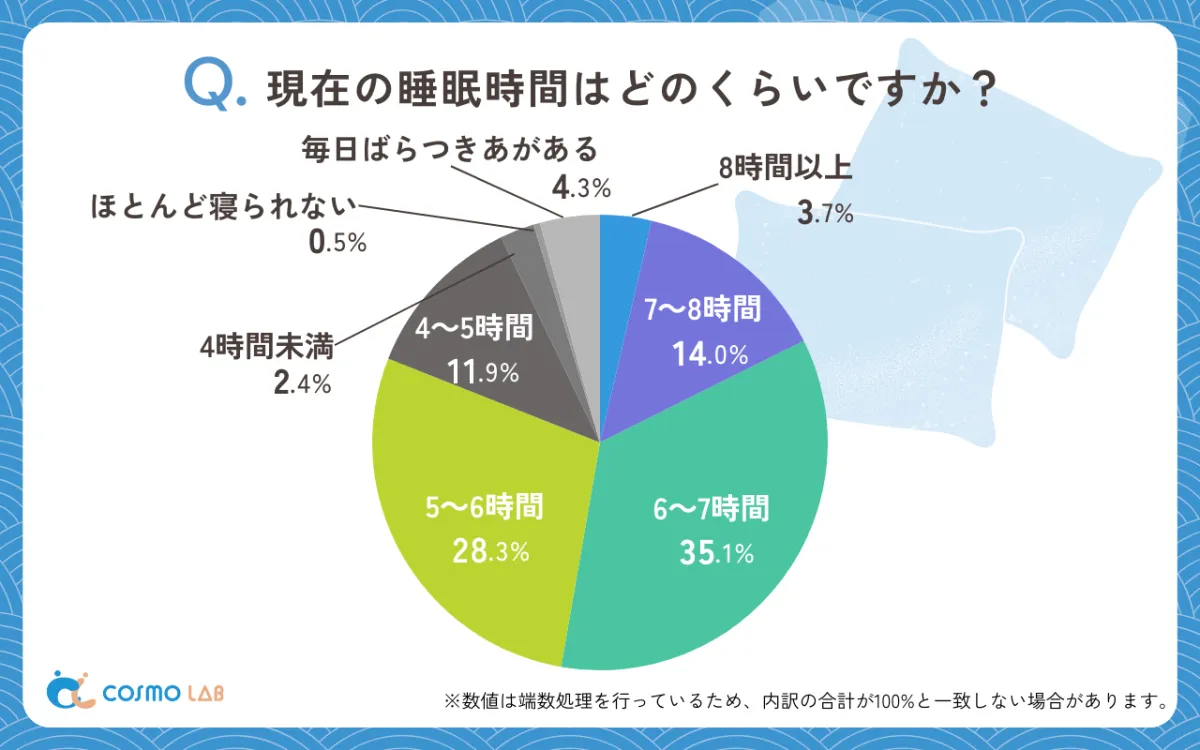
Rising Sleep Challenges Among Seniors: 65% Experience Midnight Waking Disruptions
Understanding Sleep Challenges Faced by Seniors
Overview of the Study
A recent survey conducted by Cosmo Lab, a marketing platform specializing in the senior demographic under Cosmo Health Inc., sheds light on the sleep patterns and challenges faced by the elderly. The comprehensive report reveals critical insights into sleep duration, bedtimes, quality, and prevalent issues affecting this age group. The data were collected from a sample of 658 seniors, highlighting the pressing need for effective sleep solutions.
Key Findings
1. Impact of Midnight Waking
The survey showed that 65.4% of seniors experience 'midnight waking,' a condition where they wake up in the middle of the night. This issue significantly disrupts their sleep quality and daily vitality, indicating a crucial area for addressing sleep health. The implications of such interruptions are profound, influencing mood, cognitive function, and overall well-being in seniors.
2. Stress as a Primary Factor
Interestingly, nearly half of the respondents (47.4%) attribute their sleep troubles primarily to stress, underscoring the mental health dimension associated with sleep quality. Coupled with factors like sedentary lifestyles (38.4%), these findings point to a misalignment between modern living conditions and optimal health. The complex interplay between psychological stress and sleep continues to be a major concern in enhancing senior wellness.
3. Budget-Friendly Sleep Solutions
When it comes to investing in better sleep, 54% of respondents indicated they prefer solutions under $50. This signals a trend towards seeking cost-effective measures that can easily be integrated into everyday life rather than expensive interventions. Popular improvements include changes to bedding, lighting, and temperature management in their sleeping environment.
Current Sleep Patterns Among Seniors
Analyzing the current sleep practices, the data reveal:
- - Average Sleep Duration: Most seniors report getting around 6-7 hours of sleep (35.1%), with a significant segment (14.3%) reporting less than 5 hours, indicating a potential crisis for some.
- - Bedtime Trends: Many seniors typically go to bed between 10 PM and 11 PM (31.6%), with a notable percentage maintaining a later schedule beyond midnight (19.3%). This highlights a divide between preferred sleep times and actual practices.
Ideal Sleep Conditions
A striking find is the gap between preferred and actual bedtime. A significant 46.8% of seniors aspire to sleep around 10 PM, indicating a desire for an earlier and perhaps healthier sleep pattern. However, achieving this ideal is a challenge for many.
Perceived Quality of Sleep
Regarding perceived sleep quality, 35.9% rated their sleep as 'average,' but 33.7% expressed dissatisfaction, with descriptors like 'fairly poor' or 'very poor' being noted frequently. This suggests a collective struggle among seniors seeking to enhance their sleep quality.
Addressing Sleep Woes
When listing specific sleep challenges:
- - A staggering 65.4% indicated waking during the night. Other concerns include difficulty falling asleep and restless sleeping (both at 35.3%).
- - The reasons behind these issues are varied, with psychological stress (47.4%), age-related changes (45.7%), and lack of physical activity (38.4%) being the most significant factors.
Steps to Improve Sleep
In efforts to enhance sleep quality, seniors are adopting several proactive measures, such as:
- - Regular Routines (47.6%)
- - Warm baths (40.4%)
- - Avoiding caffeine (29.9%)
Investments in Sleep Products
When it comes to spending on sleep aids, pillows are the most sought-after item (46.4%), along with mattresses and blankets. This reveals an increasing awareness of the critical role that physical comfort plays in achieving quality sleep, particularly for seniors faced with bodily discomfort.
Summary of Insights
This survey provides a vital snapshot of the sleep-related realities for seniors, pointing towards clear desires and gaps in their current sleep experiences. While many seniors are well aware of the significance of quality sleep, there exists a persistent struggle between age-associated changes and modern lifestyle pressures. The findings call for tailored approaches to support seniors in optimizing their sleep habits.
More reports covering various themes related to seniors can be accessed through Cosmo Lab’s main platform, providing additional insights into health, lifestyle, and consumer behavior.
About Cosmo Lab
Cosmo Lab offers targeted marketing services specialized for seniors, focusing on a community of over 200,000 members aged 60 and above. Their methods include surveys, interviews, and product testing to aid companies in effectively reaching this demographic. You can learn more on their website.
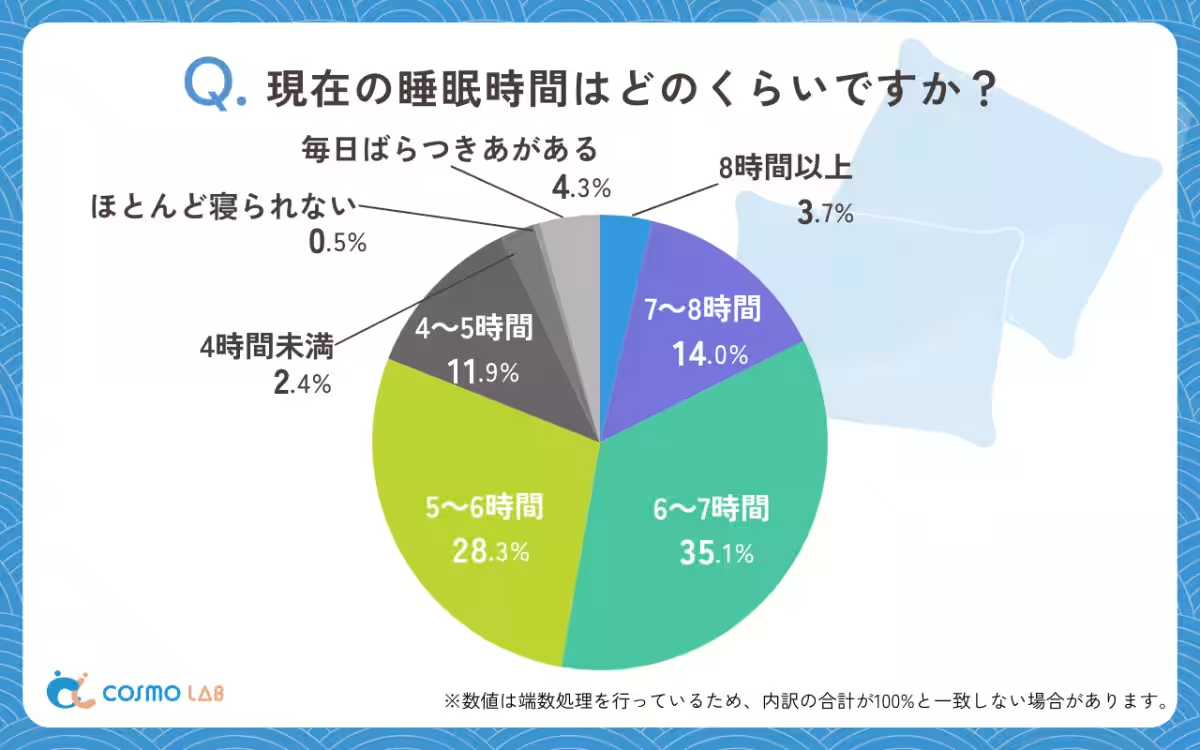
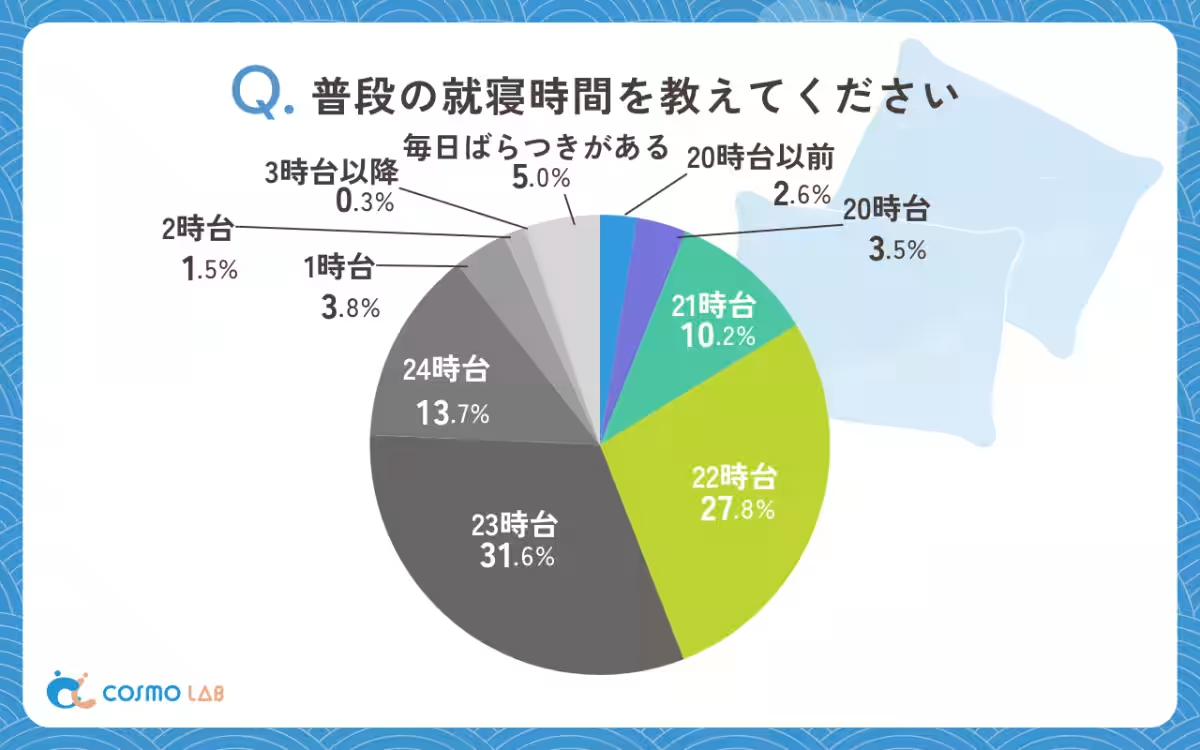
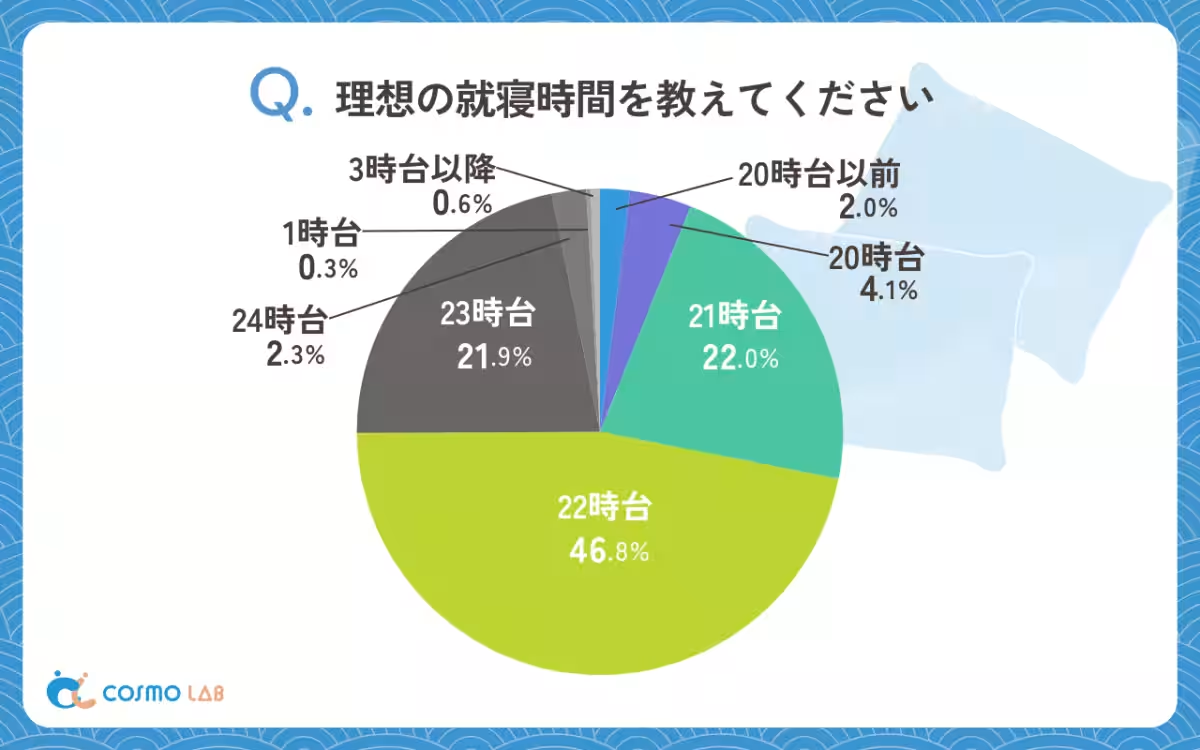
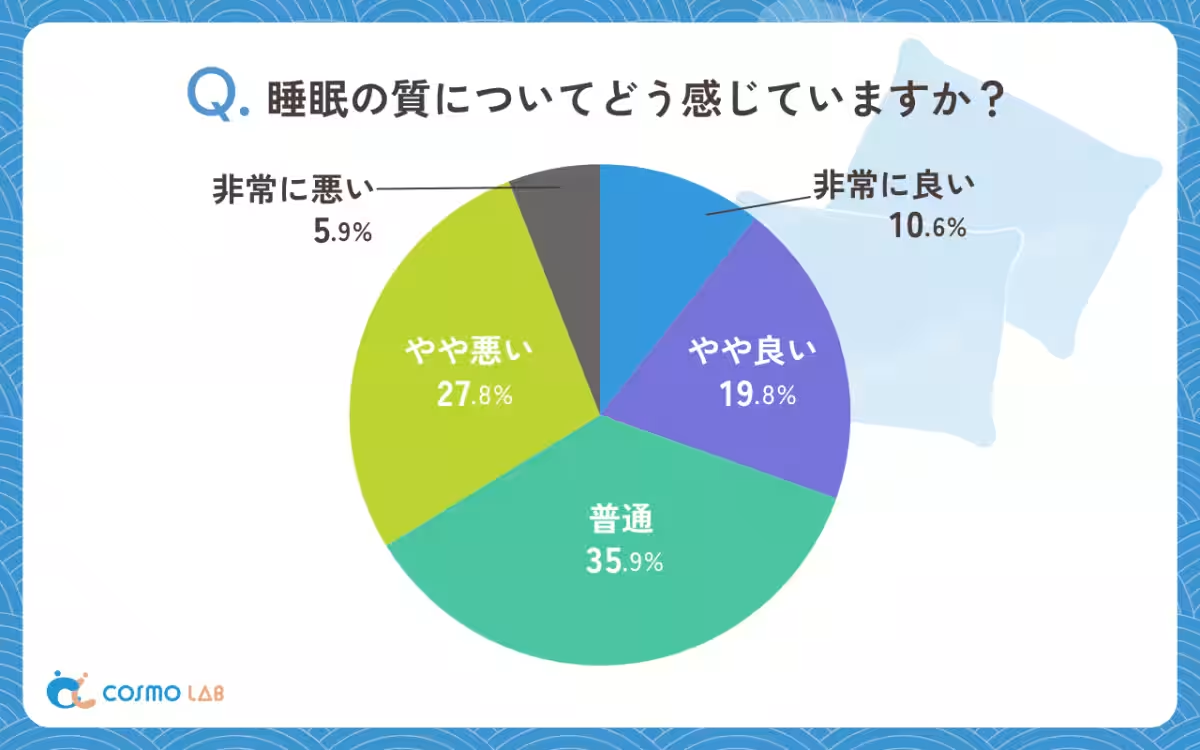
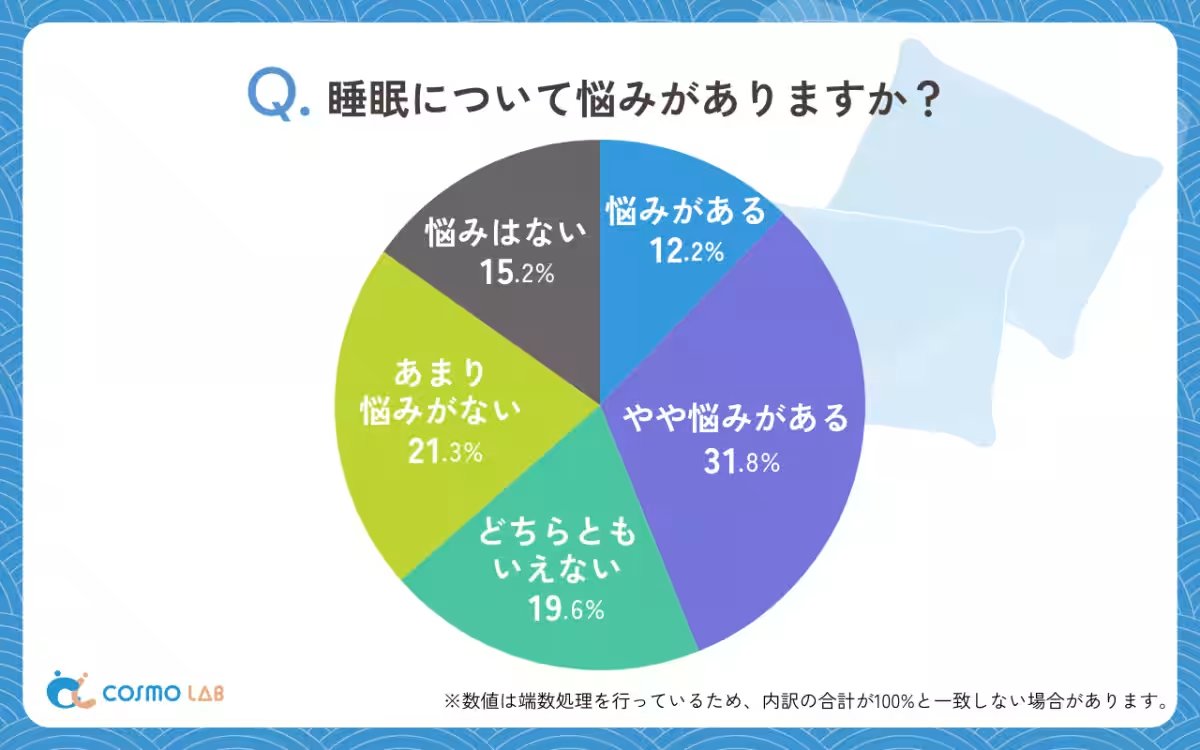
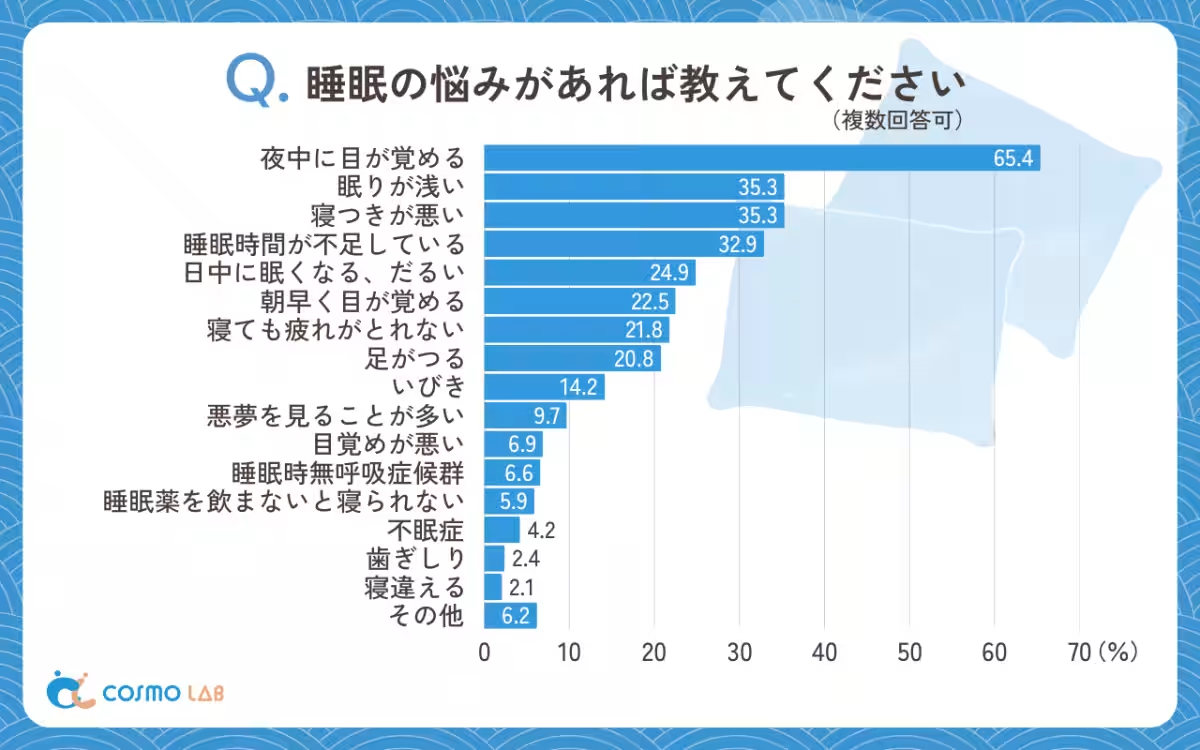
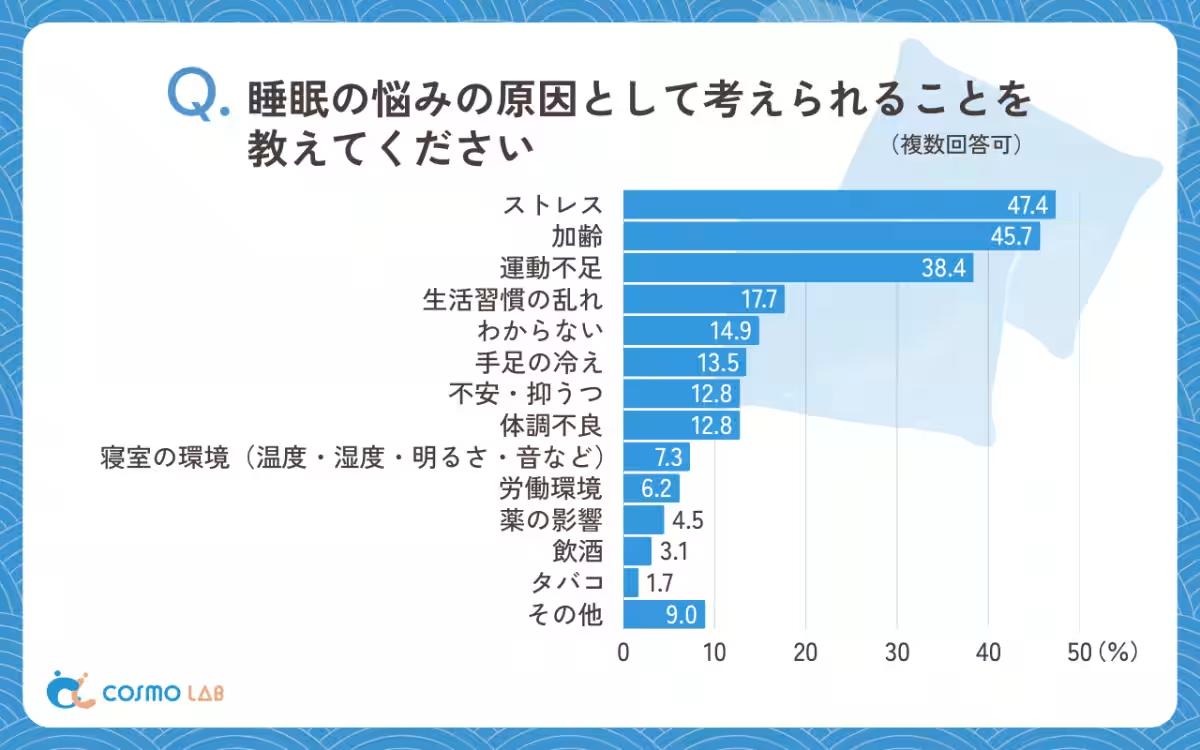
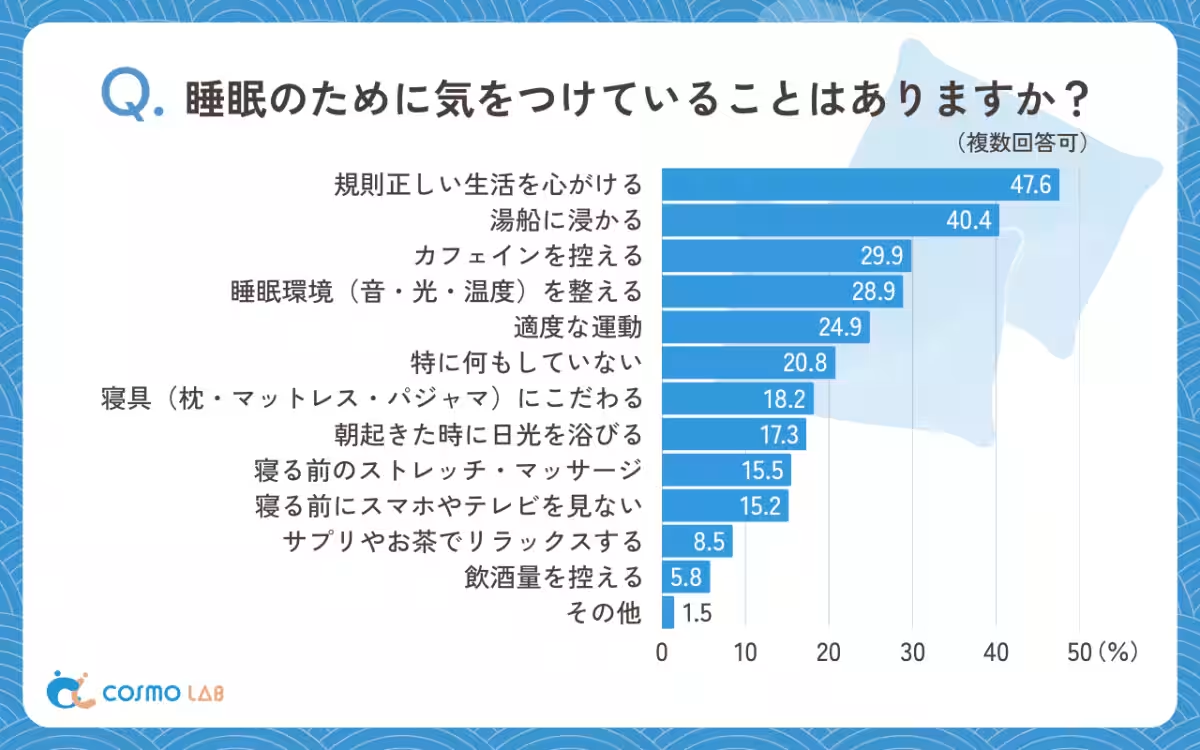
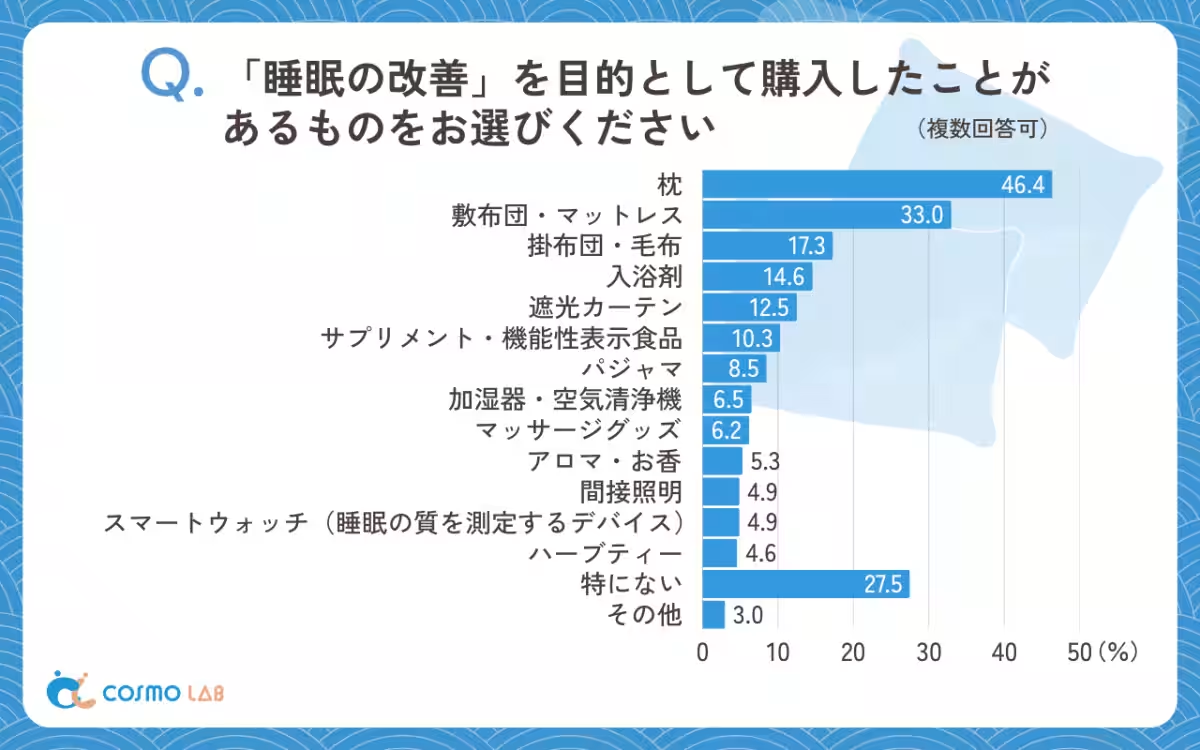
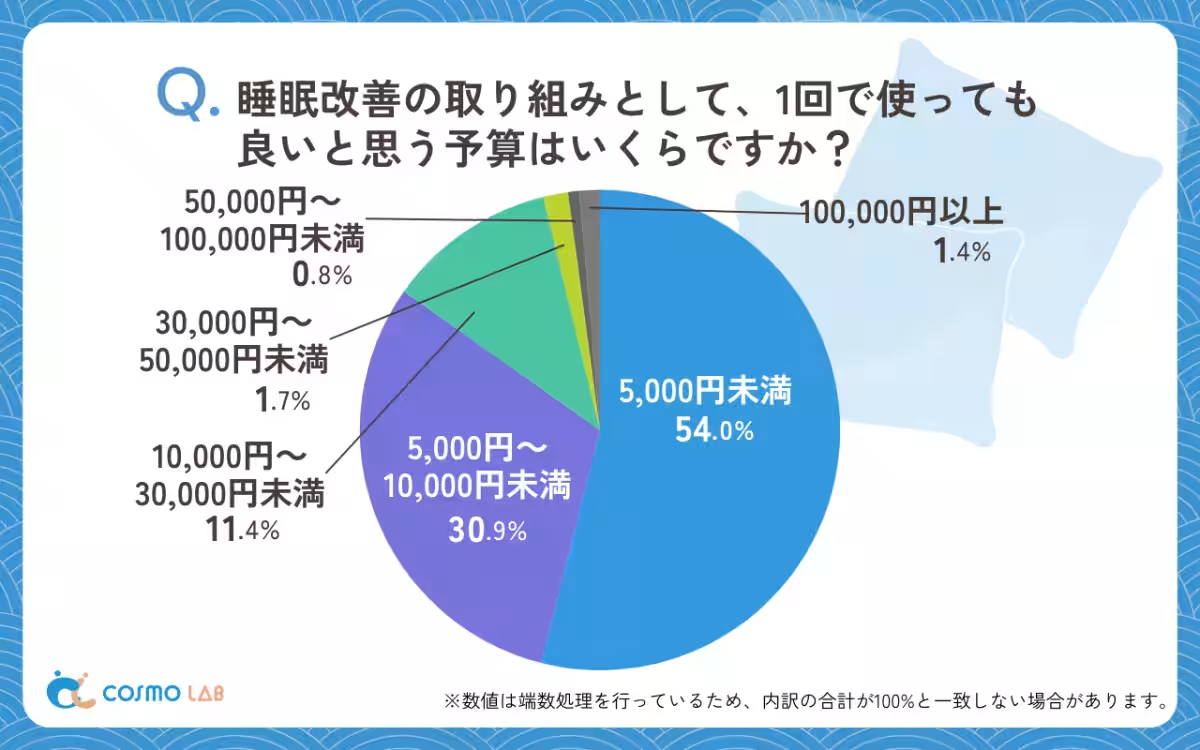
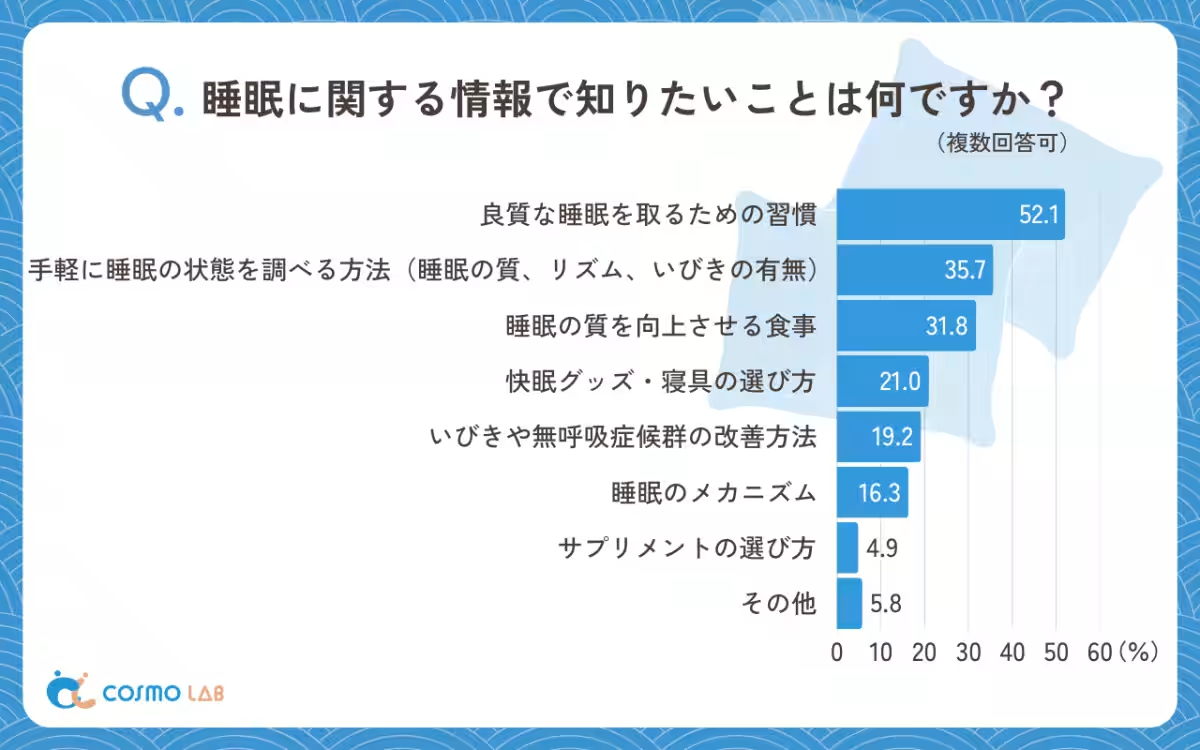
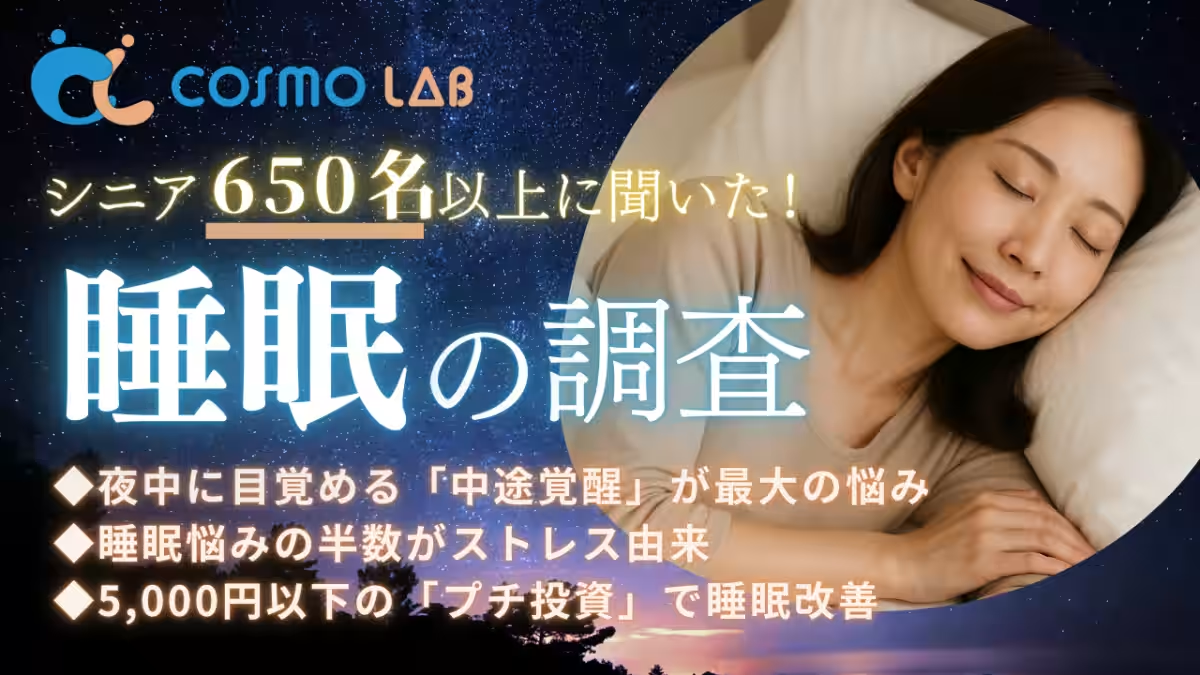
Topics Health)










【About Using Articles】
You can freely use the title and article content by linking to the page where the article is posted.
※ Images cannot be used.
【About Links】
Links are free to use.